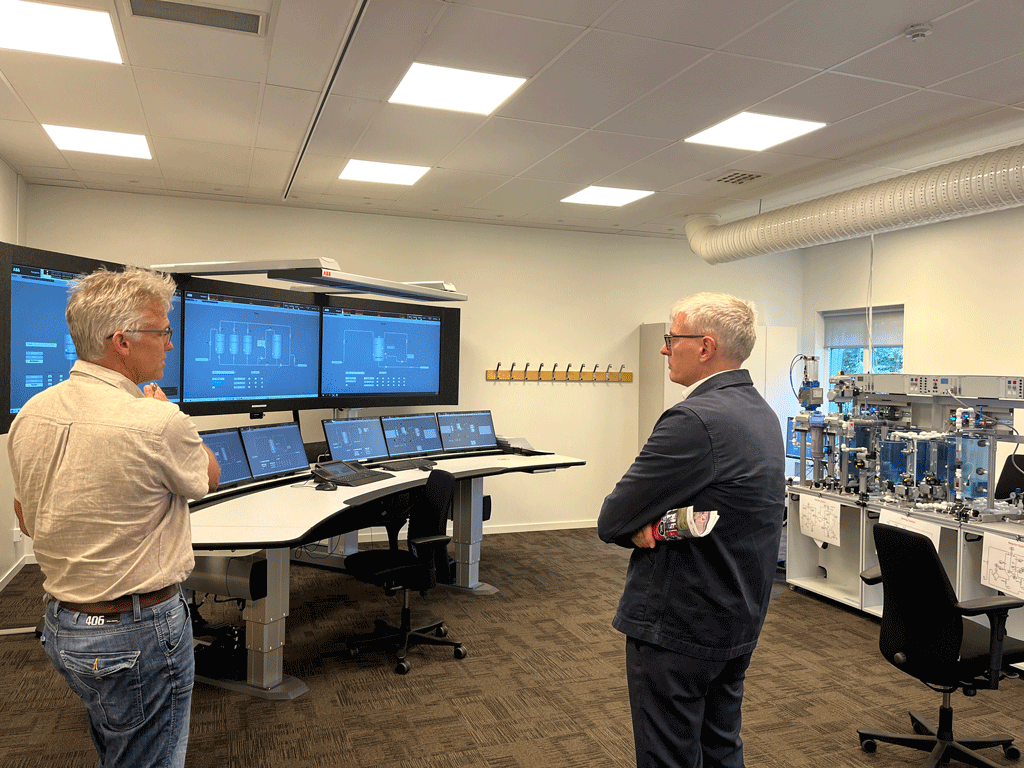The European Commission recently launched JTP GROUNDWORK, a new technical assistance facility, aiming to support eligible Just Transition Fund (JTF) regions to implement their Territorial Just Transition Plans (TJTP). Six beneficiaries – covering nine JTF regions – are currently receiving support from the first call of JTP GROUNDWORK, including Region Västerbotten in Sweden.
JTP Groundwork event in Region Västerbotten, Sweden explores how to attract workers for growing green economy investments
- 12 December 2023

JTP GROUNDWORK supported the development of labour market strategies for addressing the high growth of the region driven by investments in the green economy
Region Västerbotten is one of the EU’s most sparsely populated territories (5.0 persons per KM²). The region has an industrial sector based on mining, processing of minerals and forest raw materials and a growing service sector. The availability of renewable electricity and cooling has attracted energy-intensive industries. The main challenges of the climate transition lie in the supply of skills, access to sustainably produced renewable fuels and reducing agents and their distribution.
The challenges in Region Västerbotten’s labour market are characterised by skills shortages mainly due to a long boom in the economy, high levels of ongoing and future retirement and negative net migration in some municipalities. According to Statistics Sweden, Västerbotten’s population is projected to increase by 12 500 by 2030 while, according to the Public Employment Service, the trend points to a decreasing proportion of people at working age. However, the forecast does not take into account the investments that take place in the region among existing companies and expected start-ups. Between 2010 and 2018, the working age population has decreased by just over 7 000 people. The decrease is slightly higher among women than men. Västerbotten is estimated to have a need for 45 000 more people in the labour force by 2027 given the development of the business sector. The municipality of Skellefteå has a need of 14 000 new employees by 2030 based on known investments. The employment needs of the public sector, representing the biggest employer in the region, is significant. In the private sector, the NorthVolt battery plant and its associated facilities alone are estimated to create a demand for 4000-4500 new employees already by 2026. To meet this challenge, efforts are needed to increase the size of the labour force.
The Regional Council of Västerbotten received technical assistance from JTP GROUNDWORK to develop an issue-framework and explore from where in Europe to attract skilled and unskilled workers that can fulfil the increasing demand for labour in the coming years due to the green economic transformation.
Presenting developed framework and results of the TA activity
The regional event "Society Summit" spanned two days of presentations and discussions on the green transition challenges in the northern Sweden. The event was organized by Region Västerbotten and Skellefteå kommun (municipality) and took place on the 22-23 November 2023 in Skellefteå. It is a yearly event hosting several speakers and over 100 participants. The presentation on the TA activities, along with a presentation on the JTF and the TJTP, took place on the second day of the event and counted around 50 participants.
National, regional and local authorities, as well as large companies and SMEs got together in order to share and discuss their perspectives and potential collaboration on the ongoing transformation in the region related to green and just transition. In this context, the JTP GROUNDWORK team shared the results of the technical assistance. Among the results were a framework for issue categories to be addressed, mobility modes to be explored, and communication channels to be tackled, taking into consideration the growing needs of skilled and unskilled labour emerging from the growing green investments.
Key learnings of the event are:
- Labour is an urgent issue, especially due to the timeframe of the upcoming investments and resulting needs
- Attractiveness of Region Västerbotten to foreign regions involves multiple factors and conditions (housing, schools, reception facilities, language, recognised qualifications) which all affect the region's ability to attract and retain people
- SMEs and public sector will need to adapt in order to support a bigger share of international labour
- The green transition in northern Sweden is a process that will take several years and is not accomplished by any single labour market initiative but will only succeed through the continued contributions from many different stakeholders and channels
- It is important to leverage existing network to identify the correct entry point when reaching out to foreign regions. Communication must be fine-tuned when pursuing institutional cooperation, with a focus on potential, tangible cooperation benefits.
Since April 2023, JTP GROUNDWORK provided technical support, in collaboration with Region Västerbotten into various key areas and activities. This included a comprehensive data collection process, development of analytical methods, outreach activities and strategy formulation for the region to be able to take over and continuously explore the initiated activities for tackling the challenges. A regional analysis process was developed in order to identify other EU regions with highest collaboration potentials, including identifying a set of indicators, assigning scores and weights. Stakeholder visitation and one workshop were conducted at Skellefteå kommun (municipality) in order to further understand the issue and fine-tune the approach to the task. Once regions were selected, relevant stakeholders were identified and contacted in order to kick-start a dialogue on a potential cooperation partnership where both regions would explore win-win scenarios. The final event presented the results of those activities and showcased further approaches to be explored for labour market development. The final deliverables of the assistance will be a screening tool for potential partner regions, a final report detailing the activities, processes and results, and a compiled outreach material which the region can use to reach out to potential par
